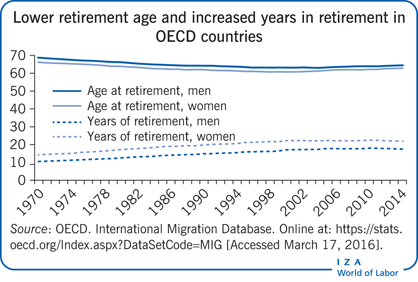Elevator pitch
As migration rates increase across the world, the choice of whether to retire in the host or home country is becoming a key decision for up to 15% of the world’s population, and this proportion is growing rapidly. Large waves of immigrants who re-settled in the second half of the 20th century are now beginning to retire. Although immigrants’ location choice at retirement is an area that has barely been studied, this decision has crucial implications for health care and social protection expenditures, both in host and origin countries.

Key findings
Pros
Immigrants returning to their origin countries at retirement can save costs for health care systems in the host country.
Decreasing travel costs help immigrants keep in physical contact with families and friends still living in their country of origin.
A third of retiring immigrants are choosing to split each year across their host and origin countries, traveling back and forth between them.
Improved coordination between countries on pension benefits would free up residential choices for immigrants at retirement.
Cons
The return of emigrants to their origin countries is likely to increase health and social care spending in those countries, where GDP per capita is on average lower than in their host country.
Income and wealth inequalities may increase in origin countries due to returning immigrants, potentially generating frustration and social unrest.
Health care is more likely to be accessed in host countries for acute health conditions, raising health care costs in those countries.
A lack of information about immigrants’ residential choices at retirement can impede government social expenditure planning for the retirement of immigrants.